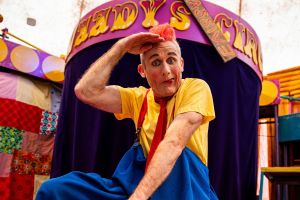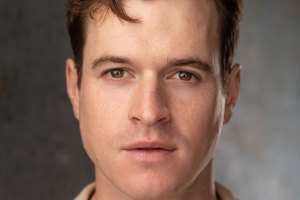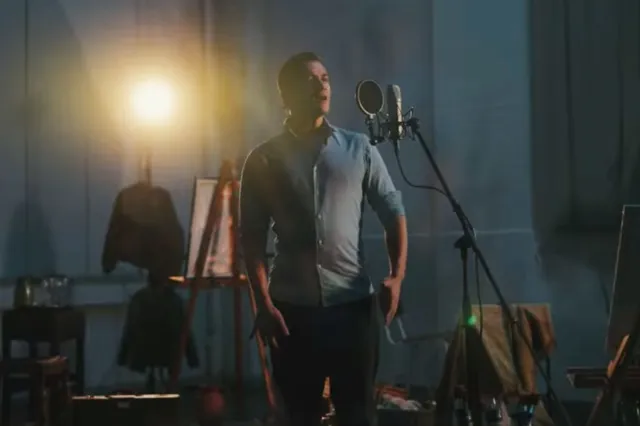Brief Encounter With … Go!Go!Go! Show’s Mike Stock
Mike Stock is one of the most successful record producers in British Single Chart history, having worked with artists such as Sir Paul McCartney, Kylie Minogue and Sir Cliff Richard under the banner Stock Aitken Waterman. As well as spending the spring of this year working with the BBC on the UK’s Eurovision Song Contest entry, Mike has embarked on a theatrical project, looking to fill a gap in the market for high quality children’s entertainment.
So why did you decide to write a show for young people? How has your pop music career helped you in that process?
Most pop music today, from my perspective, is actually pornography. Years ago you’d have called it “light pornography” or something. Most of it is writhing bodies, semi-clad and greased up. It struck me as being an area of the market in music that was not catered to properly. We allied this to the idea of a stage show. If you look at The Wiggles, mothers taking their kids to that and listening to “The Wheels on the Bus”, that doesn’t appeal to them either. So we did our research on this, and the thing that gets me fired up most of all is the encouragement I’ve got back from these people, because mothers take absolutely one hundred per cent care on everything about their kids. In other words, when they’re young, they think about what chemicals they put on their body to cure nappy rash, what nappies they wear, what shampoo they put in their hair, they filter absolutely everything they get, even the food that goes in their tummies.
But they’ve got absolutely no chance with what goes into their ears and into their brains through the television and whatever. So that’s where we started from. We’re doing this for the whole area of people who are not sure now that they can put their kids in front of a telly in case Lady Gaga’s on there, or something similar. So what we’ve done is light-hearted and innocent but still genuine pop music, allied with jokes and a storyline, with bright kids in bright costumes, that parents will enjoy just as much as kids. We know that now because we had a show yesterday. We’re getting a broad appeal. Mothers are saying that we’re not putting anything in there that’s raunchy or below the mark. This is the ethos behind what we’ve done anyway, and so far so good.
When you were putting the team together for the production, were these people you specifically recruited because they shared your ethos?
I’ve worked with Steve Crosby before. He was the guy who put Steps together, and they turned out to be a very family friendly pop outfit that did amazingly well. The market is out there but the music industry tends to turn its back on it because it’s not sexy and it’s not cool. Eddie Ruffet has experience at Universal with Bob the Builder, and he handled all their “party pops” albums. So we have got a very strong team. I don’t pretend to be an expert in the theatrical world, but I do know my pop music. That’s why I think we’ve got a blend of talents. Where we find ourselves short, we’ll bring somebody in. It’s always been my policy to work in teams.
How did you recruit the members of the band? Were you looking for band members or actors?
It’s somewhere between the two. We auditioned nationally and we booked halls in various places. We put up cards in colleges and wherever. We filmed probably 1,000 of the applicants for the job. In the end, we did some improvisation sessions. As well as being able to sing and dance, the needed to be able to act a bit. We made it very clear to them that they must have the ability to communicate with young people and have an immediate rapport. We picked the final five after an exhaustive programme of looking. It wasn’t as easy I thought it might be. As usual we had lots to choose from when it came to the girls, but when it came to the boys it was more difficult. But we got them, and I couldn’t be happier with them.
Is the plan that these guys will go on as a band, in the traditional sense?
Let’s see how this goes. I don’t want to run before we can walk. What we want to do first of all is get this show up and running and tour it round the country. Already there’s a certain amount of clamour about some of the music, but we’re resisting all of that. We’re resisting the approach from television, and all the major marketers that want to ally with us. We’ve got to be very careful where we go. I don’t want to exploit the marketplace; I want to entertain people before we take their money. I think I look at this as a much longer term project than say launching a pop band. I think at the end of it all it might come to that. We may have to fill larger venues. But that’s looking way ahead.
With your background, are you looking at the recorded music side of things?
Writing and recording songs is my love and passion. If you want to cast your eye over what I’ve done, I don’t like it when pop music becomes just an excuse to be sexy, I hate it. When I started with Kylie – I did her first 20 hits – she was very indie, but now she’s gone all raunchy. And there’s nothing in the marketplace to replace all that. I mean I sound like a Methodist minister or something, but I really am looking for higher standards from both broadcasters and the recording industry in what they feed everybody. I think they have a responsibility which they’re ignoring. It’s a bit like Facebook or YouTube. Somebody eventually will get to grips with the problems. We’re starting our little movement off with good, clean honest fun, and which will hopefully show quality. If in the end it leads to record sales, that’s fine, although we’ll probably end up doing more DVDs and films. I’m not looking for a hit on iTunes, that’s almost irrelevant.
Do you think that whereas you might have traditionally assembles pop bands to take on the music charts that this is something could more commonly replicate in a theatrical sense?
I think, with the decline in CDs, which followed years of a blindfolded attitude of the industry to what was going on, they’ve seen that there are no record sales anymore, so they’ve jumped on to the iTunes download market, but more specifically they’re gone into the clubs and theatres and taken that on. Bands have seen that the only thing they can do is pick up their instruments and go out and tour.
So you’re almost doing that the other way round?
Exactly. I’m not saying that anything is right or anything is wrong, but with the way we’re approaching it, I believe we have a future to look to. The 7-year-olds of today are tomorrow’s record buyers. Some of the images that come through in today’s music are not great. When you buy a pack of Pampers you know what you’re putting on your baby, but a lot of the time in music you’re not too aware of the context. The videos as well, I think can have quite a harmful influence on young people. Anyway, I’m preaching!
Moving on to your experiences being part of this year’s Eurovision entry, can you tell us a little bit about that?
The BBC had a year to organise this. I get a call in February and they wanted the song done by March 12th, in six different versions for six different singers I’d never seen. I think the BBC has to make up its mind whether they want to do it seriously, and if the public really wants a proper attempt to be made at this. That was put together in a way that was so last minute. If I could do it again I’d win the thing. If I could start now, I know exactly what we need to do to get those Europeans.
What’s that?
It’s not about the song anymore. It’s about having a marketing and promotional campaign in your own country and a hit in territories before you even go to Eurovision. The music is irrelevant. They’re making a television programme. It’s a bit like X Factor and all the others. So you need to concentrate on the display of what you do, not just a bloke standing out there singing a song. All the ones as I regarded as having the best songs came nowhere, and all the ones I regarded as having gimmicks or strange outfits were the ones that did better. The one that won it, the German girl that thought she was a Cockney, had already been a hit in many European countries. That number one had been massively promoted the German equivalent of Simon Cowell. It was already a hit.
So you think we should be using established acts to take to Eurovision?
I think it’s a way to go about doing it. It’s not about who sings it, it’s about planning it a year in advance, having the foresight to see that by January you need to have your record in the UK charts, and you need to then have promoted it through Europe throughout February and March, and by the time you come to Eurovision itself everyone has already heard it, and the image is already out there, and all the promotional campaign has been done. You have to start that a year in advance. I bet you the BBC haven’t thought about what they’re doing next year.
What’s next for you and what’s next for the Go!Go!Go! show?
We’re here in the theatre in Leicester Square til September and we’ve already organised a mini-tour round some of the shopping malls. We’re looking to start a nationwide tour next spring in the regional theatres, and that will be like phase two. It depends what happens in the next eight weeks. I’ve no doubt what we’ve got is hitting the right spot, but I don’t know between now and the end of this run whether or not we might continue in London. It all depends whether we decide it’s going so well that we jump in and put a record out or something. We’re just taking it as it comes.
Is your marketing plan kind of two-pronged, in that you’re marketing both to the kids and the mothers that are bringing them along?
You can’t tell mothers anything, they tell you. We’re trying to give them exactly what we know they want, what they can take their kids to see and be reasonably secure about. Even though there’s no double entendre, we still hope they’re catchy tunes nonetheless, not nursery rhymes, stuff that the mums can like themselves. They’re the boss.
Are you working on any music projects out with the Go!Go!Go! show at the moment?
I have one or two. I’m not talking about it too much at the moment though. I have some projects lined up for after September when I’ve got the show out of the way – or rather when I’ve got it up, running and flying!
The Go!Go!Go! Show is being performed at the Leicester Square Theatre until 30 August 2010.












